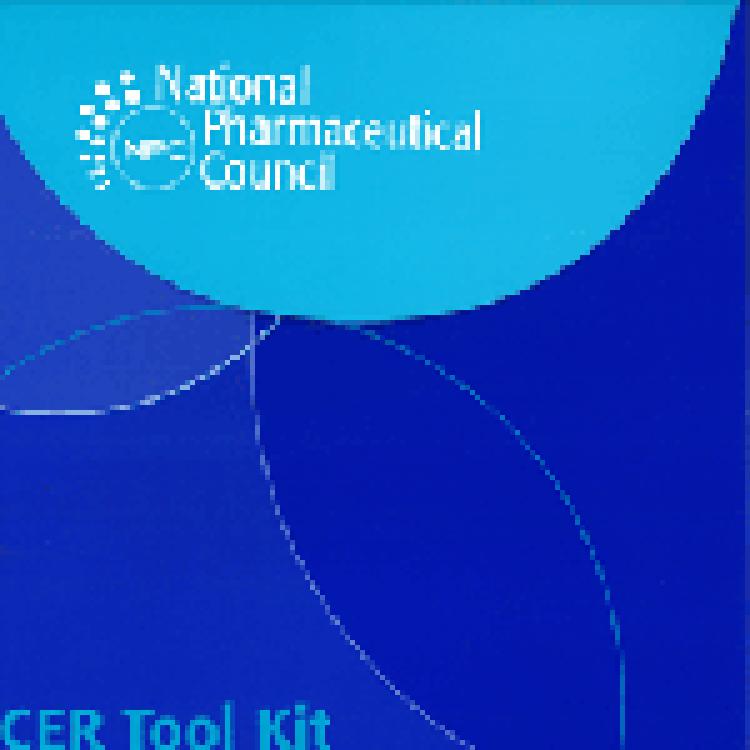Comparative Effectiveness Research Toolkit
The establishment of the nonprofit, public-private entity, the Patient-Centered Outcomes Research Institute (PCORI), in the new health reform law has elevated the visibility and importance of comparative effectiveness research (CER) in the health care system. But as CER takes on an increasingly influential role in informing coverage decisions and the treatments that patients receive, many questions remain about how to ensure that the comparative evidence that is developed is both scientifically valid and communicated in such a way that it can be applied appropriately.To help you and your colleagues understand CER and some of the important questions under discussion, the National Pharmaceutical Council has developed this Comparative Effectiveness Research Tool Kit.This CER Tool Kit includes the following materials:The Patient-Centered Outcomes Research Institute: Methodology Committee Resource Guide, with biographical information about the PCORI methodology committee members and background information on the different types of CER;The Patient-Centered Outcomes Research Institute Resource Guide, which includes biographical sketches of the PCORI board of governors, a history of CER and the law that created PCORI, and additional resouces;Demystifying Comparative Effectiveness Research: A Case Study Learning Guide (full report and executive summary), which provides guidance to help stakeholders understand the three primary types of CER and includes a checklist on how to evaluate a CER study and assess its applicability to a particular health care decision;Framing the Debate/Untangling the Potential Impact of Comparative Effectiveness Research on Innovation, which explores how CER investments will shape incentives for bringing new therapies to market; National Institute for Health and Clinical Excellence (NICE): How Does It Work and What Are the Implications for the U.S.? (executive summary), which examines the U.K.’s health technology assessment organization and discusses key learnings from this organization; andThe Good ReseArch for Comparative Effectiveness (GRACE) principles, which address good practice for the design, conduct, analysis, and reporting of observational studies of comparative effectiveness.Additional copies of the materials can be ordered through NPC’s website.
Image
